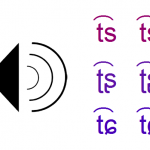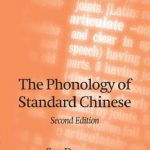Articles tagged with ‘Phonology’
-
Learning to hear the sounds and tones in Mandarin
As infants, we perceive the world without categories. Learning our first language forms sound categories, aiding understanding but losing other sound distinctions. As adults learning a second language, we need to regain this ability. But how?
Read → -
How learning some basic theory can improve your Mandarin pronunciation
Listening, mimicking and getting feedback is the best way to learn Chinese pronunciation, but unless you’re a small child or extremely talented, adding some theory to the mix can also be helpful.
Read → -
How to learn Chinese pronunciation as a beginner
Pronunciation is an important, yet often neglected part of learning Chinese. The earlier you get the sounds and tones down, the better, but how should you approach learning these things as a beginner?
Read → -
A guide to Pinyin traps and pitfalls: Learning Mandarin pronunciation
When learning to pronounce Mandarin, you need to learn both the sounds and how they are written, usually with Pinyin. Did you know that many student errors actually come from a poor understanding of Pinyin, rather than the sounds themselves being difficult? Welcome to my guide to Pinyin traps and pitfalls.
Read → -
Two reasons why pronunciation matters more than you think
Good pronunciation matters, whether you like it or not. In general, students (and teachers) tend to stop caring about pronunciation much earlier than they should. You don’t need to aim for native-like pronunciation, but clear and easily-understood Chinese should be the goal of all students. In this article I present two arguments: one about the fact that pronunciation and communication are closely linked, one about how pronunciation reflects both you as a person and your other skills.
Read → -
Review: The Phonology of Standard Chinese
Duanmu San’s “The Phonology of Standard Chinese” is by far the best introduction to Mandarin phonology that I’m aware of. It’s mostly useful for people who like phonology or are already at an advanced level and want to add a theoretical edge. This book contains tons of interesting material, all well-presented and well-argued.
Read →





